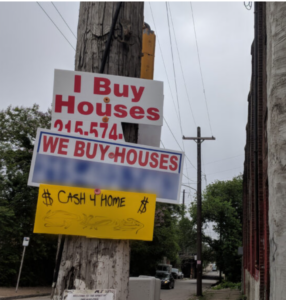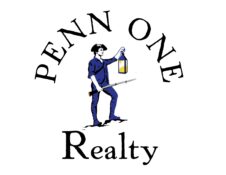
Investors or Hucksters?
Philly passes bill to curb real estate scammers
North Philadelphia native Blondelle Murphy, 66, almost lost her family home last year.
When her parents died, she and her five siblings inherited the house near Temple University. Her 81-year-old brother was the only one living in the house at the time.
A man approached him trying to buy the house for $30,000, significantly less than what the property is worth. He picked him up, brought him to City Hall, and had the brother sign papers he didn’t understand. It turned out that he signed paperwork stating that his siblings had no interest in the home. This man pressured the 81-year-old to sign away their home without his other siblings’ consent — a crime.
Murphy took it upon herself to personally call the man preying on her brother to tell him to leave the family alone. Her brother cannot sell because he is not the sole owner, she told the man.
“I felt as though it was a great injustice, because he tricked my brother,” Murphy said. “He found someone that was vulnerable and took advantage of them. He was actually trying to steal.”
It was Murphy’s tenacity that saved her brother from being scammed, but not everyone is so lucky.
A bill passed Thursday by City Council aims to curb the prevalence of real estate speculators known as wholesalers — and protect other families from the experience Murphy’s brother had.
“When I introduced this legislation in October, I mentioned the signs we all see in our communities – the ‘we buy houses’ signs,” said Councilmember Allan Domb, who spearheaded the legislation.
Those signs, Domb said, reminded him of the “many ways people can be taken advantage of” in a real estate market where home values are rising in areas that have not experienced such growth in the past. In gentrifying areas like the section of North Philadelphia near Temple, longtime owners may be unaware of the equity they have accrued.
Wholesalers, who primarily operate under layers of LLCs, do not typically buy houses. Instead, they make an offer to the homeowner and then assign or sell the sales contract to someone else for a better price. This leaves the homeowner with less than what the house is worth and more profits for the wholesaler.
The Greater Philadelphia Association of REALTORS has endorsed the bill.
It’s not a coincidence that Murphy’s elderly brother was approached in their family’s situation. According to Kate Dugan, an attorney for the Homeownership and Consumer Rights Unit at Community Legal Services, these operators often target vulnerable homeowners such as seniors or immigrants who do not speak or read English, heirs who are grieving dead family members and those who are at risk for mortgage or tax foreclosure.
by Taylor Allen

